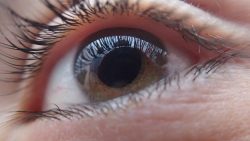Is Hypnosis Helpful in Addiction Recovery?
Drug addiction can take a tremendous toll on the body, but the actual addiction problem takes root inside the mind of the addict. This means someone who successfully completes detox will still battle an addiction problem in the absence of needed treatment help.
As one of many alternative addiction treatment approaches, hypnosis works directly with the mind at a subconscious level. From this vantage point, hypnosis get to the root of the addiction problem.
As with any addiction recovery approach, hypnosis’ effectiveness can vary depending on how any one person’s responds to the treatment.
For more information on hypnosis in addiction recovery, call our toll-free helpline at 888-647-0051 (Who Answers?) .
Hypnosis and Retraining the Addicted Brain

Hypnosis helps you envision yourself living a drug-free life.
As addiction develops over time, the brain forms neural pathways that correspond with the thinking, emotions and behaviors that characterize compulsive drug use. By the time a full-blown addiction develops, the brain works differently than it did before.
According to the Journal of the National Medical Association, the brain’s ability to change in this way can be used to undo addiction’s effects. Hypnosis works to create new neural pathways and connections, and in the process, rewires the addicted brain at a subconscious level.
Through hypnotic suggestion, the same cues and triggers that prompt the urge for drugs, can be used to reinforce a person’s desire to abstain from drug use.
Hypnosis in Addiction Recovery – How Does It Work?
Tapping the Subconscious – Hypnosis as a Visualization Tool
Hypnosis works by bypassing the conscious mind and planting specific directives inside the subconscious mind. In terms of addiction recovery, the hypnotist employs creative visualization to help the addict envision him- or herself living a drug-free life.
Unlike the conscious mind, the subconscious can accept a directive at face value without having to think it through. Likewise, directives received through the subconscious easily integrate within a person’s emotional makeup.
In effect, working with the subconscious mind enables a person to replace the addiction mindset with a drug-free approach to everyday living.
https://www.disorders.org/hypnosis-does-it-work/
Changing Belief Systems
According to the University of Alaska Fairbanks, hypnosis’ effectiveness stems from its ability to replace destructive, addiction-based belief systems and behavioral patterns with healthy ways of coping with daily life. Much like the interventions used in a drug treatment program, hypnosis addresses the core, underlying issues that drive compulsive drug-using behaviors.
Whereas standard drug treatment approaches work with the conscious mind, hypnosis can work faster since it deals with the subconscious mind.
Changing Perceptions
More than anything else, the effects of chronic drug abuse and addiction change the brain’s reward system, an area that shapes a person’s beliefs, motivations and priorities. Ultimately, changes to the brain reward system determine a person’s sense of right and wrong as well as how one views self and others.
The visualization used in hypnosis works to change how the addict perceives drug use as well as how he or she reacts to memories involving past drug use. For instance, instead of experiencing drug cravings when under stress, he or she will view drug use as harmful and destructive rather than feel an overwhelming “need” for the drug’s effects.
If you’re struggling with addiction and considering hypnosis treatment, call our helpline at 888-647-0051 (Who Answers?) to ask about hypnosis-based recovery programs.





